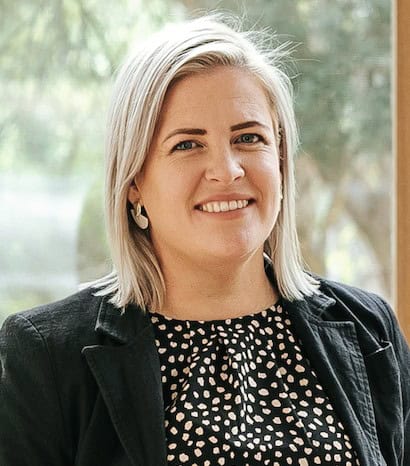Each year, hundreds of thousands of dollars, and countless hours, are invested into training a single doctor. From university degrees and postgraduate programs to specialist training and continuing education, our health system makes an extraordinary commitment to cultivating clinical skill and knowledge. Yet, remarkably little is invested in the vessel that carries all of this expertise: the doctor themselves.
“You wouldn’t send a ship of priceless cargo out on stormy seas without ensuring the vessel was sound. So why do we send our doctors into the waves without tending to their wellbeing?” – Dr Emily Amos
At Whole Hearted Medicine, we often meet clinicians whose bodies, minds, and spirits are frayed from years of self-sacrifice in the name of professionalism. They are not broken; they are depleted, and they are not alone. We are part of a system that prizes the contents- clinical excellence, diagnostic acumen, procedural skill- but overlooks the very container that holds them all.
We treat health care professionals like expendable containers of knowledge and skill, without considering the full cost of never nurturing these important vessels.
This is not only a personal issue. It is a business issue, and it is an ethical one.
The Hidden Cost of Neglecting the Practitioner
When doctors are not supported in cultivating self-awareness and self-compassion, and when healthcare culture fails to honour their full humanity, the consequences ripple through entire systems (Conversano et al., 2020). Burnout is not a personal failing; it is an occupational hazard, born from environments that normalise overwork, permit bullying, and fail to normalise help-seeking (Erian, Bade, & Erian, 2023; Hodkinson et al., 2022). While individual skills such as emotional literacy and self-awareness are important, they are only sustainable when supported by organisational cultures that foster psychological safety, open communication, and professional autonomy; all key conditions for healthcare provider wellbeing and satisfaction (Rafi’i et al., 2025).
The impacts of failing to care for doctor wellbeing are not just personal- they are systemic: increased medical errors, diminished patient outcomes, workforce attrition, and escalating costs to health services (Dewa et al., 2017; Hodkinson et al., 2022). A 2024 systematic review found 66 associations between staff experience (stress, burnout, fatigue) and patient outcomes (adverse events, patient satisfaction) in hospital settings, highlighting the tangible risk to care quality when clinician wellbeing is compromised (Bragge et al., 2024).
In other words, when we invest in the wellbeing of doctors, we are investing in the integrity of our healthcare systems.
Beyond the economics, there is a deeper ethical imperative. Doctors are human. They deserve care not because they are useful, but because they are inherently worthy of it. Systems that ask doctors to show up with compassion, clarity, and professionalism must also be willing to meet them with care, support, and respect.
The Case for Shifting the Culture of Medical Training
One of the more striking contrasts we see at Whole Hearted Medicine comes when comparing the culture of western medical education with other traditions of healing, such as yoga. In yoga teacher training, for example, it is taken as a given that the practitioner’s wellbeing is foundational (Brookes & Reynolds, 2024): students are taught that they cannot sustainably offer presence, safety or grounded guidance to others if they are disconnected from those qualities themselves.
This wisdom is both ancient and profoundly relevant to modern medicine.
What might change if we embedded this principle into the early years of medical education? What if we taught emerging doctors that resourcing their inner world is not indulgent but essential? What if self-awareness, emotional literacy, and nervous-system regulation were core competencies, not optional extras?
The research supports the urgency. In Australia, postgraduate medical trainees are experiencing high rates of burnout and poor psychological wellbeing, with contributing factors including long work hours, high academic loads, and unsupportive environments (Balhatchet et al., 2023).
Without structural investment in the vessel (the doctor), the contents (clinical knowledge and skill set) risk being carried into uncertain waters by a vulnerable platform.
– Dr Emily Amos
Whole Hearted Medicine: A new model of support
When I started Whole Hearted Medicine, I did so with the goal of creating the sort of space that I wish I had all those years ago, before I burnt out. Somewhere that I could pause, exhale, and finally say- “I am feeling alone and overwhelmed with all of this… the immense training & knowledge, the expectations, the weight of responsibility. I need some support to hold this all”. I didn’t necessarily need that ‘fixed’, but I needed to feel less alone with it. Basically, I needed to feel human.
So I created Whole Hearted Medicine to support doctors in reconnecting with themselves- not just as professionals, but as whole human beings. Our retreats, workshops, and mentorships are grounded in evidence-based approaches, including the work of Dr. Kristin Neff (2023) on self-compassion, Dr Richard Schwartz’s (2021) work on Internal Family Systems, the practice of Lifestyle Medicine (Lee et al., 2023), and Amy Edmondson’s (1999) work on Psychological Safety. With research showing that self-compassion interventions especially, significantly improve wellbeing and reduce burnout in healthcare professionals (Neff et al., 2020).
But even the most capable doctor needs more than inner strength. A well-equipped vessel still needs a lighthouse to keep it off the rocks in stormy seas. At Whole Hearted Medicine, we’re working at both levels: we support individual doctors to build inner resilience through wellbeing education grounded in self-compassion, emotional regulation, and internal awareness. These are the tools and safety equipment that every clinician deserves to carry onboard.
At the same time, we’re actively engaging with healthcare leaders- the lighthouse keepers. Through our model of Whole Hearted Leadership, we’re supporting healthcare leaders to shift culture, rethink expectations, and begin the work of systemic care. This is the early stage of systems-level change: one where the environment becomes safer, more human, and more sustainable for those who serve within it.
Doctors shouldn’t have to navigate stormy seas in silence or isolation. When both the vessel is strong and the lighthouse is guiding wisely, safe passage becomes possible.
We don’t offer quick fixes or surface-level wellness. We hold space for doctors to come home to themselves, to attend to the parts that have been over-functioning or long-ignored, and to remember that their worth is not conditional on performance. When doctors are supported to care for the vessel- body, mind, and spirit; and are held within systems that protect and value their humanity, what they carry becomes more powerful, more sustainable, and more generously given.
A Call to Leadership
Investing in doctor wellbeing is not a luxury, it is a crucial step in securing the long term sustainability of the valuable healthcare workforce.
We invite hospital administrators, medical educators, and policymakers to ask not only what doctors can do, but what they need in order to do it well and continue doing it long-term? And just as we do at each and every educational retreat that we run, we invite fellow doctors to consider their own needs not as barriers to care, but as gateways to deeper service.
You are the vessel that carries the contents. You wouldn’t send precious cargo out to sea on a rickety old boat- and yet, without investment in the doctor themselves, that is exactly what our systems do.
It’s time for a new approach- redefining care, from the inside out.
References
Balhatchet, B., Schütze, H., Williams, N., & Ashford, B. (2023). Factors that impact burnout and psychological wellbeing in Australian postgraduate medical trainees: A systematic review. Global Surgical Education – Journal of the Association for Surgical Education, 2, Article 65. https://doi.org/10.1007/s44186-023-00143-3
Bragge, P., Delafosse, V., Kellner, P., Barkley, L., Arora, M., & McMillan, S. (2024). Relationship between staff experience and patient outcomes in hospital settings: An overview of reviews. BMJ Open, 15(1), e091942. https://doi.org/10.1136/bmjopen-2024-091942
Brooks, S., & Reynolds, S. (2024). The exploration of becoming as a yoga practitioner and its impact on identity formation, health, and well‑being. Journal of Occupational Science, 31(2), 354–370. https://doi.org/10.1080/14427591.2023.2253802
Conversano, C., Ciacchini, R., Orrù, G., Di Giuseppe, M., Gemignani, A., & Poli, A. (2020). Mindfulness, compassion, and self‑compassion among health care professionals: What’s new? Frontiers in Psychology, 11, Article 1683. https://doi.org/10.3389/fpsyg.2020.01683
Dewa, C. S., Loong, D., Bonato, S., & Trojanowski, L. (2022). The relationship between physician burnout and quality of healthcare in terms of safety and acceptability: A systematic review. BMJ Open, 7(6), e015141. https://doi.org/10.1136/bmjopen-2016-015141
Edmondson, A. (1999). Psychological safety and learning behavior in work teams. Administrative Science Quarterly, 44(2), 350–383. https://doi.org/10.2307/2666999
Erian, C., Bade, D., & Erian, M. (2023, October 30). Burnout in medicine leading to clinical errors and “severe stress” [Review of Burnout in medicine leading to clinical errors and “severe stress”]. Insight Plus; MJA. https://insightplus.mja.com.au/2023/41/burnout-in-medicine-leading-to-clinical-errors-and-severe-stress/
Hodkinson, A., Zhou, A., Johnson, J., Geraghty, K., Riley, R., Zhou, A., Panagopoulou, E., Chew-Graham, C. A., Peters, D., Esmail, A., & Panagioti, M. (2022). Associations of physician burnout with career engagement and quality of patient care: systematic review and meta-analysis. BMJ (Clinical research ed.), 378, e070442. https://doi.org/10.1136/bmj-2022-070442
Lee, H., Going, M., Tivnan, V., Tollefson, M., Comander, A., & Frates, E. (2023). Restoring Well-Being for Physicians Through Lifestyle Medicine. American journal of lifestyle medicine, 18(2), 260–268. https://doi.org/10.1177/15598276231194290
Neff, K. D. (2023). Self-compassion: Theory, method, research, and intervention. Annual Review of Psychology, 74, 193–217. https://doi.org/10.1146/annurev-psych-010423-120186
Neff, K. D., Knox, M. C., Long, P., Gregory, K., Kuchar, A., & Davidson, O. (2020). Caring for others without losing yourself: An adaptation of the Mindful Self-Compassion Programme for healthcare communities. Journal of Clinical Psychology, 76(9), 1543–1562. https://doi.org/10.1002/jclp.23070
Rafi’i, M. R., Hanif, S. A. M., & Bin Daud, F. (2025). Exploring the link between healthcare organizational culture and provider work satisfaction: a systematic review. BMC health services research, 25(1), 904. https://doi.org/10.1186/s12913-025-12973-6
Schwartz, R. C. (2021). No bad parts: Healing trauma and restoring wholeness with the Internal Family Systems model. Sounds True.


